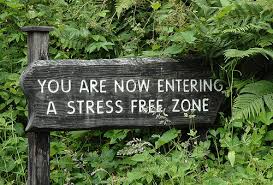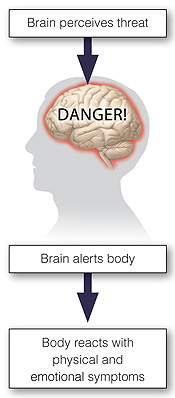Putting the Puzzles of Anxiety and Depression Together
"Whether you are struggling with low energy, lack of motivation, low confidence, constant tearfulness, or you are feeling on edge all of the time and finding it difficult to relax, or maybe life is just a real effort at the moment...I will do my best to help you.
I am passionate about assisting people who are experiencing stress and mood related issues to put their life back together.
I will work with you to understand what's going on, why it's happening, and most importantly give you tools to manage your situation today. Give me a call on 0404 248 576 - let's get started on understanding your unique psychology and helping you to put the puzzle of life together!"
What is Anxiety?
Sometimes as a psychologist, when I ask people if they are experiencing anxiety they reply that they're not sure. They describe a lot of different feelings including:
- feeling on edge, nervouse, keyed up, jumpier than usual
- grumpier than usual with friends and/or family

- feeling nauseas, sick to the stomache
- an overwhelming sense that something bad was about to happen
- feeling incredibly afraid
- feeling terrified that you may lose control, are going crazy, or may even die
- a burning heart, a racing heart
- tightness in the chest, difficulty breathing, a choking sensation
- racing thoughts, excessive worry, mind on over-drive
- difficulty getting to sleep, waking up really early and not being able to get back to sleep
- feeling tense
- a shakiness in the hands and legs, a tingling sensation in the hands and/or feet, feeling numb
- feeling as though you are in a dream, as though you are not real or the things around you are not real
- a sense that you are standing outside of your body, detached from yourself
If you have several of these symptoms it is possible that you are experiencing anxiety, panic attacks or anxiety disorder.
Anxiety can be described as an overwhelming sense of dread or as though something awful may happen. People also describe feeling on edge, keyed up, jittery. It may last for hours, days, weeks or months. You may not be able to explain why you are feeling this way however when you sit down and talk to a psychologist about your life it is often easy to understand what is going on by looking at some of the following causative factors:
 sleep disturbance: you find it difficult to get to sleep or you are waking frequently or very early in the morning, usually around 3am
sleep disturbance: you find it difficult to get to sleep or you are waking frequently or very early in the morning, usually around 3am- you have had a number of stressful events happen or you have an ongoing stressor such asbeing a carer for someone else
- you have a predisposition to anxiety: your mother or father experienced anxiety
- you have a personality type that is prone to anxiety: you worry a lot and tend to spend a great deal of time analyzing situations or over-thinking things
- panic disorder
- agoraphobia
- specific phobia
- social phobia
- separation anxiety disorder
- selective mutism
- acute stress disorder
- generalized anxiety disorder
- substance-induced anxiety disorder

Anxiety and panic attacks are very real and are a product of your brain kind of misfiring, in a sense. Putting it simply, your brain perceives something bad going on in your environment and switches on your internal protective mechanism more popularly known as the "fight/flight/freeze"system in your body. Your fight/flight/freeze system operates from the emotional part of the brain and usually the logical, rational part of your brain goes off-line during this process. This explains why you can't usually 'think' your way out of anxiety, you will find problem solving extremely difficult.
Unfortunately sometimes this process can become automatic, hence the benefit of learning how to be mindful and aware rather than moving through life mindlessly.
*Rossouw, P. J. (2011). The Treatment of Anxiety and Depression - Medication or Psychotherapy?, Neuropsychotherapy, 8.
If you are unable to consult a psychologist at present you may benefit by working on down-regulating you stress system. You can do this by teaching your body how to relax using:
- progressive muscle relaxation
- guided meditation
- try yoga! If you struggle to sit still yoga allows you to relax while still moving your body
Of course, the ultimate self-help strategy is to learn and apply mindfulness strategies. Have a look at some of the titles listed on our recommended reading page or the links to free resources on our links page to learn more about mindfulness.


